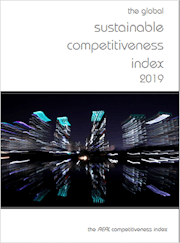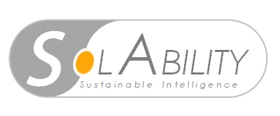
Measuring Sustainable Competitiveness:
The Global Sustainable Competitiveness Index (GSCI) is based on quantitative indicators grouped in 5 pillars that define the competitiveness of a nation: natural capital, resource intensity, social capital, intellectual capital, and governance.
All indicators are measured as-is (latest available data) as well as the development over the most recent 10 years. The GSCI therefore is a much more inclusive and comprehensive measurement that conventional measurements, such as the GDP.
Highlights of the Global Sustainable Competitiveness Report 2019:
- The top 5 spots are occupied by Scandinavia: Sweden is leading the Sustainable Competitiveness Index – followed by the other 4 the Scandinavian nations.
- The top 20 are dominated by Northern European countries, including the Baltic states
- Of the top twenty nations only two are not European – New Zealand on 12, and Canada on 19.
- Germany ranks 15, the UK 17, and the World’s largest economy, the US, is ranked 34. The US ranks particularly low in resource efficiency, but also social capital – potentially undermining the global status of the US in the future
- Of the large emerging economies (BRICs), China is ranked 37, Brazil 49, Russia 51, and India 130.
- Some of the least developed nations have a considerable higher GSCI ranking than their GDP would suggest (e.g. Laos, Timor, Burma, Bhutan, Suriname…)
- Asian nations (South Korea, Japan, Singapore, and China) lead the Intellectual Capital ranking. However, achieving sustained prosperity in these countries might be compromised by Natural Capital constraints and current high resource intensity/low resource efficiency
- The Social Cohesion ranking is headed by Northern European (Scandinavian) countries, indicating that Social Cohesion is the result of economic growth combined with a country-wide social consensus
Publish your content with EB Publishing
It's about who you reach. Get your news, events, jobs and thought leadership seen by those who matter to you.








